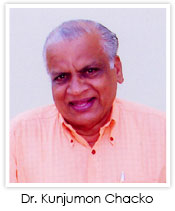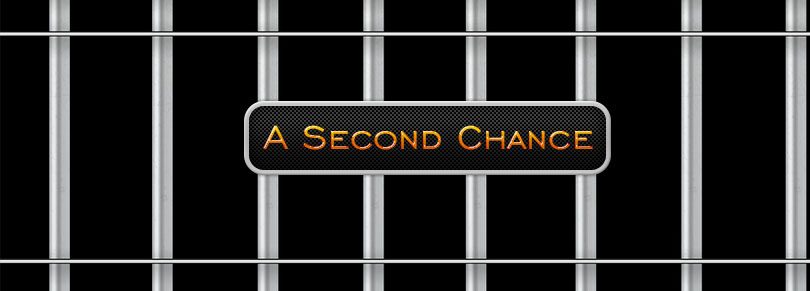 For over 40 years, Prison Fellowship India (PFI) has made a positive impact in the lives of inmates and their families. With the help of over 800 volunteers, PF India provides resources like rehabilitation assistance, educational programs and a half way house for more that 100,000 prisoners.
For over 40 years, Prison Fellowship India (PFI) has made a positive impact in the lives of inmates and their families. With the help of over 800 volunteers, PF India provides resources like rehabilitation assistance, educational programs and a half way house for more that 100,000 prisoners.
In this interview, Dr. Kunjumon Chacko provides in-depth insight into the profile of a person with criminal tendencies, how you can you protect your child from falling into this self destructive pattern and the need for us to partner in rehabilitation of prisoners.
Q: What is prison ministry and what are the challenges that PFI faces?
Prisoners are people like any of us. There are first time offenders, habitual, property related and life related offenders. Given a second chance most of them can be brought back to normal life. They have anxieties, pains, and problems like us. Unfortunately, in our criminal justice system, punishment is more retributive than reformative in nature.
Every prisoner is a volcano which is about to erupt. They are a threat to the social setting of society. Prison is no decoration for any government; it is a museum which exhibits how bad the state of our society is. Working with prisoners is a great opportunity. It helps prisoners to look in to their own lives and many choose to mend their ways. We get full cooperation from the officials. The greatest challenge is to get volunteers with concern for prisoners and their families.
Prison ministry is not honored by many. Prisoners have great needs. This work involves meeting those needs.
Q: What kind of intervention does PFI offer to prisoners?
We do counseling, reconciliation efforts, find employment for released prisoners and give them discipleship training.
Q: There is extensive media coverage on the rise in crime. Has violence increased in today’s Indian society?
Criminal tendencies and activities are on the increase all over the world and India is no exception. Media not only covers criminal activities but celebrates and projects criminals and criminal activity. Violence is increasing.
Q: In your experience of working with criminals, how does a person fall into this self destructive pattern?
There are numerous reasons but the major one is when family upbringing does not inculcate a proper value system. At a very young age as children they develop wrong values. It is a gradual process. The first five years children watch, see, hear, learn from parents. Then they go to school and spend more time with friends.
The parents do not spend time with the children and today most children are raised by the media. There is no supervision – what they do, how they spend their time, what they watch, how they spend their money, who their friends are. Discipline is a choice nowadays. When they enter the teenage years, they undergo a transition and face great peer pressure. Then they enter into youth and they are on their own.
The freedom they enjoy lands them in slavery to several evils. Most of them start out rebelling, drinking alcohol, drugs, women and one day they are caught by the police and several cases end up in remand prison. That place becomes the training center for advanced crimes. They conclude that making easy money is the way.
Q: Are parenting patterns such a big influence? How can we as parents ensure this never happens to our child?
Children follow what they see. However, I have worked with criminals whose children never chose the parent’s way. Parenting plays a significant role but we cannot generalize. Love your children and let them understand they are loved by you. Give every child individual attention. Children need to learn and experience that they are VIPs in the family. When the father and mother love each other, children feel secure. Appreciate your children. The Bible says, train up a child in the way he should go and when he is old, he will not depart from it. Children need to grow up with a sense of importance, dignity and purpose in life.
Q: Is rehabilitation possible for all kinds of criminals?
Once a criminal always a criminal? Rehabilitation is a partnership project. The released prisoner needs to make up his mind and cooperate with the counselor for the rehabilitation programme. Even if both partner together, society also needs to extend full cooperation in providing opportunities during and after rehabilitation.
Ultimately it is the prisoner’s choice. Once a criminal is not always a criminal. Remember the age old saying, ‘there is no saint without a sinful past and no sinner without hope of forgiveness.’
Q: What kind of transformations have you witnessed?
I will not claim 100% success. But over last 40 years I have witnessed thousands of prisoners once labeled as incorrigible come back to the main stream, work, earn an honest living and continue as law abiding and responsible citizens.
Q: What kind of work do you do with the family and children of prisoners?
Crime hits every one and the worst hit are the women and children. In cases where the only bread winner is incarcerated, the family starves. Children go to the streets to beg for food. The stigmas they carry deny them opportunities. We bring needy children of prisoners to our Precious Children Home, provide them food, clothing, shelter, medical care and education.
After they finish Higher Secondary we provide them skill training. Girls go to nursing school and so far we have trained 13 nurses. Boys are trained in different technical skills.
Q: How can we as members of society help with the rehabilitation of prisoners?
The society that is responsible to send a person to prison must also take the initiative to bring him out of prison and rehabilitate him. I would like to challenge all of you reading this, “Do you know someone from your neighborhood or community who is/was in prison?” If the answer is ‘yes’, go and reach out to him before it is too late. Help him to find employment. Get the help of the police and community leaders in this noble task.





